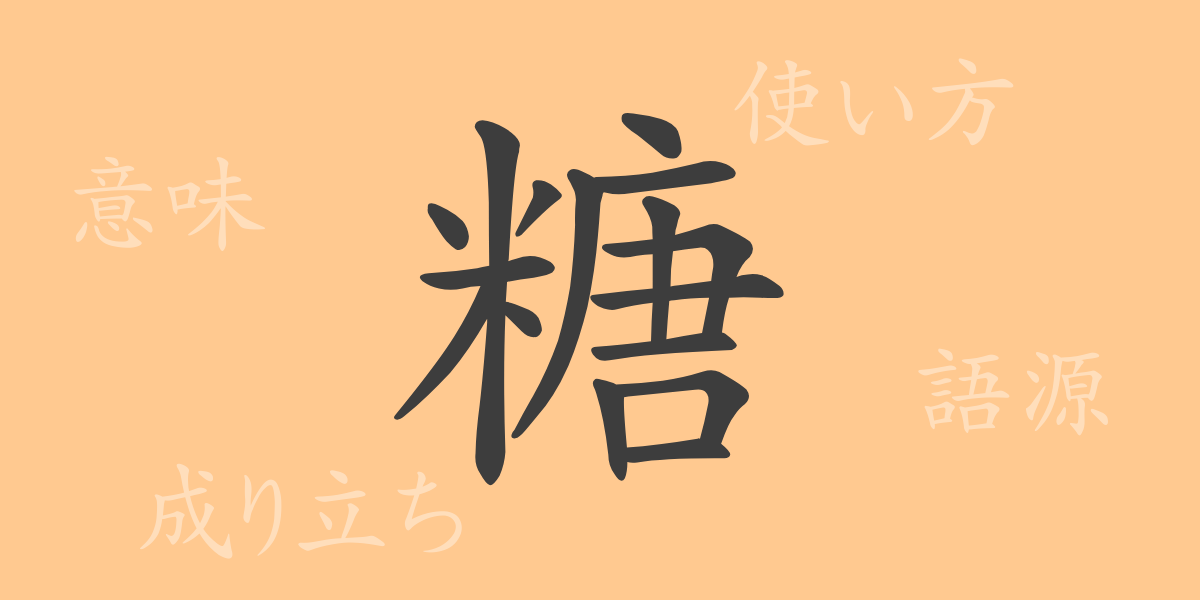In the rich tapestry of Japanese language expression, the Kanji ‘糖 (とう)’ plays a pivotal role, not just as a culinary ingredient but also in numerous idioms and proverbs, deeply embedded in our lives. This article delves into the Kanji ‘糖’, exploring its origins, contemporary usage, and its appearance in various phrases and proverbs. ‘糖’ isn’t just pivotal in our food culture but also significantly influences our linguistic landscape.
Origins of ‘糖 (とう)’
The Kanji ‘糖’ originated from ancient China, combining ‘甘 (あまい)’, which means sweet, with ‘米 (こめ)’, representing rice. This combination was initially intended to suggest sweet food made from rice. Historically, it referred to natural sweeteners. Over time, it evolved to denote a broader category of sweet substances.
Meaning and Usage of ‘糖 (とう)’
In modern Japanese, ‘糖’ primarily refers to sweet substances, especially sugars, used in cooking and baking, like in sugar content or in medical contexts like blood sugar levels. The term ‘糖質制限 (とうしつせいげん)’, meaning carbohydrate restriction, highlights its frequent use in dietary and health discussions.
Reading, Stroke Count, and Radical of ‘糖 (とう)’
The Kanji ‘糖’ is well-known in the Japanese language, and understanding its pronunciation, structure, and components is crucial.
- Readings: On’yomi ‘トウ’; there are no Kun’yomi readings.
- Stroke Count: ‘糖’ consists of 16 strokes.
- Radical: The radical is ‘米 (こめへん)’, relating to rice.
Phrases, Idioms, and Proverbs Using ‘糖 (とう)’
‘糖’ appears in many idioms and proverbs, reflecting its properties as a source of sweetness and energy. For example, ‘糖尿病 (とうにょうびょう)’ refers to diabetes, a disease related to sugar metabolism. ‘糖衣 (とうい)’ means to sugarcoat or to embellish superficially. The term ‘糖分 (とうぶん)’ denotes the sugar content in food.
Conclusion on ‘糖 (とう)’
The character ‘糖’ is deeply rooted in our daily lives, impacting our food culture, health, and the way we express ourselves. Its sweetness continues to captivate us, and while its health implications call for moderation, the linguistic usage of ‘糖’ reflects our enduring love for sweetness. Understanding the background and applications of ‘糖’ allows us to appreciate the richness of the Japanese language further.

























